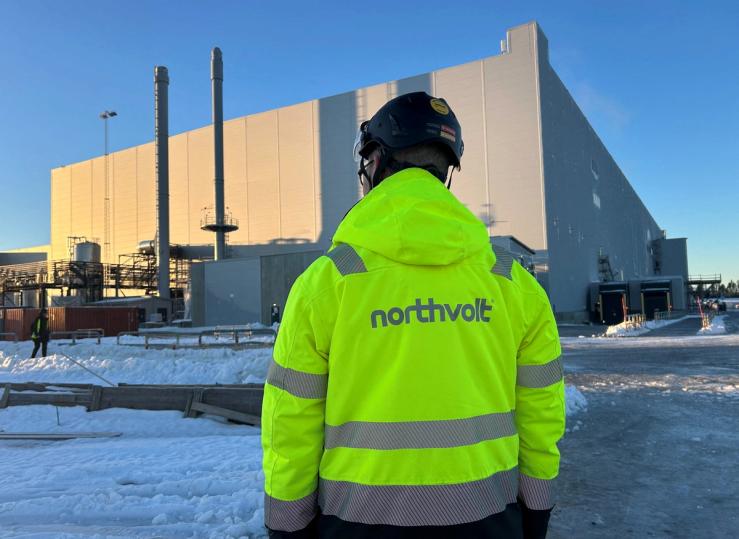The News
A European battery factory that became one of the most notorious climate tech setbacks of the last year is getting a new lease on life thanks to a US startup’s high-stakes gamble.
Lyten, a California-based maker of cutting-edge batteries, said last week that it bought all remaining assets belonging to Northvolt, a Swedish battery firm that booked $15 billion in private investment and $50 billion in orders before collapsing into bankruptcy in November. Northvolt was building up to a much-anticipated public stock offering, and looked for a time like one of Europe’s most promising new industrial companies in any sector, as well as its strongest rebuttal to the hegemony of Chinese clean tech manufacturers. But the company ultimately failed to crank out a sufficient number of batteries before running out of cash, due in part to a reliance on Chinese technology that led to technical snafus and internal culture clashes.
That created an opportunity for Lyten, which was eager to bring its manufacturing capabilities up to full commercial scale but struggling to find financiers willing to make an expensive bet on a new factory. So — for a price that was undisclosed but which Lyten Chief Sustainability Officer Keith Norman told Semafor was “a very good deal” — Lyten bought Northvolt’s EV gigafactory and research lab in Sweden, a grid-scale battery factory in Poland, and the plans for a new factory in Germany. It also acquired much of Northvolt’s intellectual property and hired several members of its executive staff, with plans to hire more.
“We feel very bullish that the pieces are in place” to run the facilities profitably, Norman said.
In this article:
Tim’s view
Northvolt was a lesson in the perils of head-to-head battery competition with China. The company’s plan to churn out conventional lithium-ion EV batteries was attractive to Volkswagen and other European automakers that were under political pressure to source locally. But China’s economies of scale meant the only possible way for Northvolt to compete on price was to grow as quickly as possible, which ultimately spread the company too thin and forced it to take on too much debt. In the end, it simply ran out of runway.
The European EV battery market is in many ways even more challenged than it was during Northvolt’s final days. Competition with Chinese manufacturers has only increased, and escalating trade wars are restricting Europe’s access both to Chinese raw materials as well as to auto export markets in the US. And Northvolt’s multi-billion-dollar portfolio of deals didn’t survive the bankruptcy, meaning Lyten will have to build a new customer base from scratch.
But Lyten has a few things going for it.
One is debt: Lyten didn’t acquire any of Northvolt’s financial baggage, and was able to get the Swedish firm’s facilities at a fraction of their original cost, putting Lyten on a much stronger financial footing from the start.
Another is technology: While Lyten does plan to restart the Sweden facility by producing the same lithium-ion batteries that got Northvolt into trouble, Norman said, it aims to transition as quickly as possible to Lyten’s proprietary lithium-sulphur batteries that are much lighter-weight (and therefore more attractive for EV makers) and use about 85% less mineral content than conventional batteries, meaning they are much less dependent on China-controlled supply chains. And in the time since the bankruptcy, Northvolt’s remaining staff have continued to work out engineering kinks in the facilities.
Lyten also has some existing cash flow sources — its batteries are increasingly popular for drones and other military hardware, Norman said — and will get a nice new one with the Polish grid-scale battery factory, which was already profitable under Northvolt’s ownership and will likely become even more so thanks to the data center construction boom. And while the US government has pulled the rug on most EV subsidies, there is still strong public backing for them in Europe; Norman is optimistic that new deals with automakers will be readily available: “Every time we talk to a customer, it’s more and more bullish in terms of what their needs are.”
Room for Disagreement
Jonas Nahm, an industrial policy researcher at Johns Hopkins University, agreed that Lyten has a number of advantages over Northvolt. Still, there’s a crucial difference between having a good plan with a strong technology, and actually being able to effectively operate a commercial-scale factory. That’s a gap that has swallowed many a promising climate tech startup before, he said, and “the technical and operational challenges that brought down Northvolt haven’t magically disappeared. This is undoubtedly a risky move by Lyten, given that they’re essentially betting they can succeed where a well-funded European firm failed spectacularly. The graveyard of battery startups serves as a reminder of how difficult this industry can be.”
Notable
- Lithium prices surged on Monday after battery giant CATL halted operations at a mine in China as Beijing seeks to tackle overcapacity.


